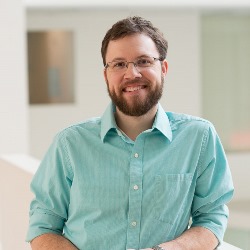
Biophysics for Neural Computation
Description
The biological substrates of computation in the cortex remain elusive. While the remarkable recent progress of artificial neural systems has generated important insights into cortical function, these networks employ highly simplified linear model neurons. Real cortical neurons receive thousands of synaptic inputs distributed across extensive dendritic arbors that exhibit highly nonlinear properties, providing an opportunity for subcellular computation before final integration and output at the axon. Neuronal units endowed with nonlinear dendritic processing could provide their respective networks with increased power, flexibility, and/or efficiency. However, the contributions of dendrites to cortical computations underlying behavior remain unclear. Dendritic mechanisms may not be recruited during relevant in vivo circuit activity or may only serve to compensate for other biological constraints. In this talk, I will discuss my lab’s progress in evaluating the biophysical substrates, engagement, and utility of dendritic processing in the mammalian cortex. We apply imaging and electrophysiology in two model circuits to pursue complementary approaches to this problem. First, using the reciprocal circuitry between V1 and the retrosplenial cortex (RSC) in the mouse brain we are performing a multidisciplinary synapses-to-systems analysis of dendritic integration. Second, we are systematically analyzing the biophysical properties of single neurons in temporal cortex across the phylogenetic tree from humans to mice. We hope to use the results from these lines of inquiry to understand general principles of cortical design and function, and to facilitate the development of new artificial neural networks with enhanced capabilities.
Speaker Bio
Mark joined the faculty at MIT in 2015. He received his B.A. in Biology from Reed College in Portland, Oregon and his Ph.D. from the University of Texas at Austin. Prior to joining MIT, he was a postdoctoral researcher at the Howard Hughes Medical Institute’s Janelia Research Campus in Ashburn VA. Mark Harnett studies how the biophysical features of individual neurons, including ion channels, receptors, and membrane electrical properties, endow neural circuits with the ability to process information and perform the complex computations that underlie behavior. As part of this work, the Harnett lab was the first to describe the physiological properties of human dendrites, the elaborate tree-like structures through which neurons receive the vast majority of their synaptic inputs. Harnett also examines how computations are instantiated in neural circuits to produce complex behaviors such as spatial navigation.

